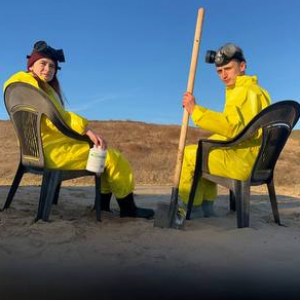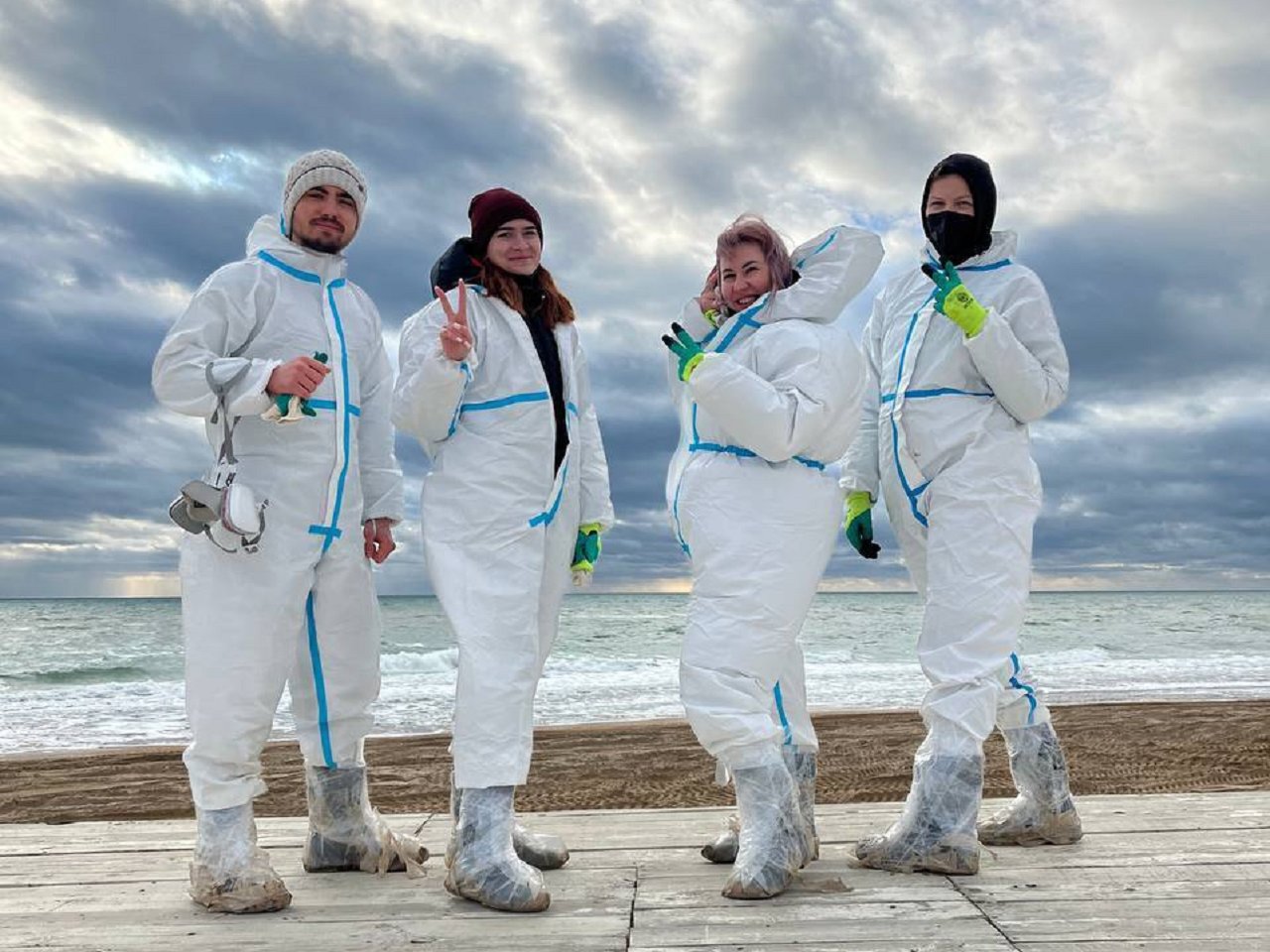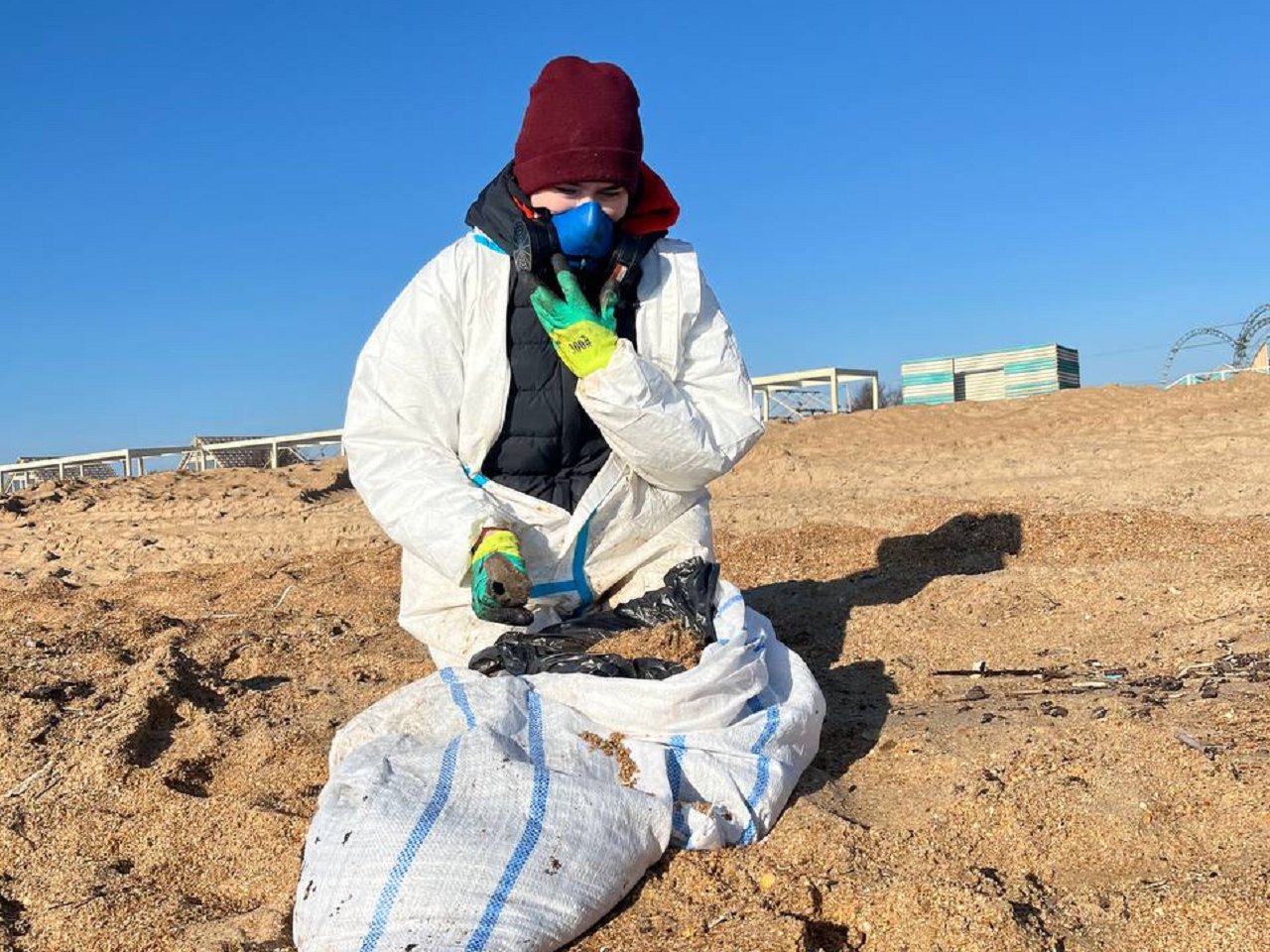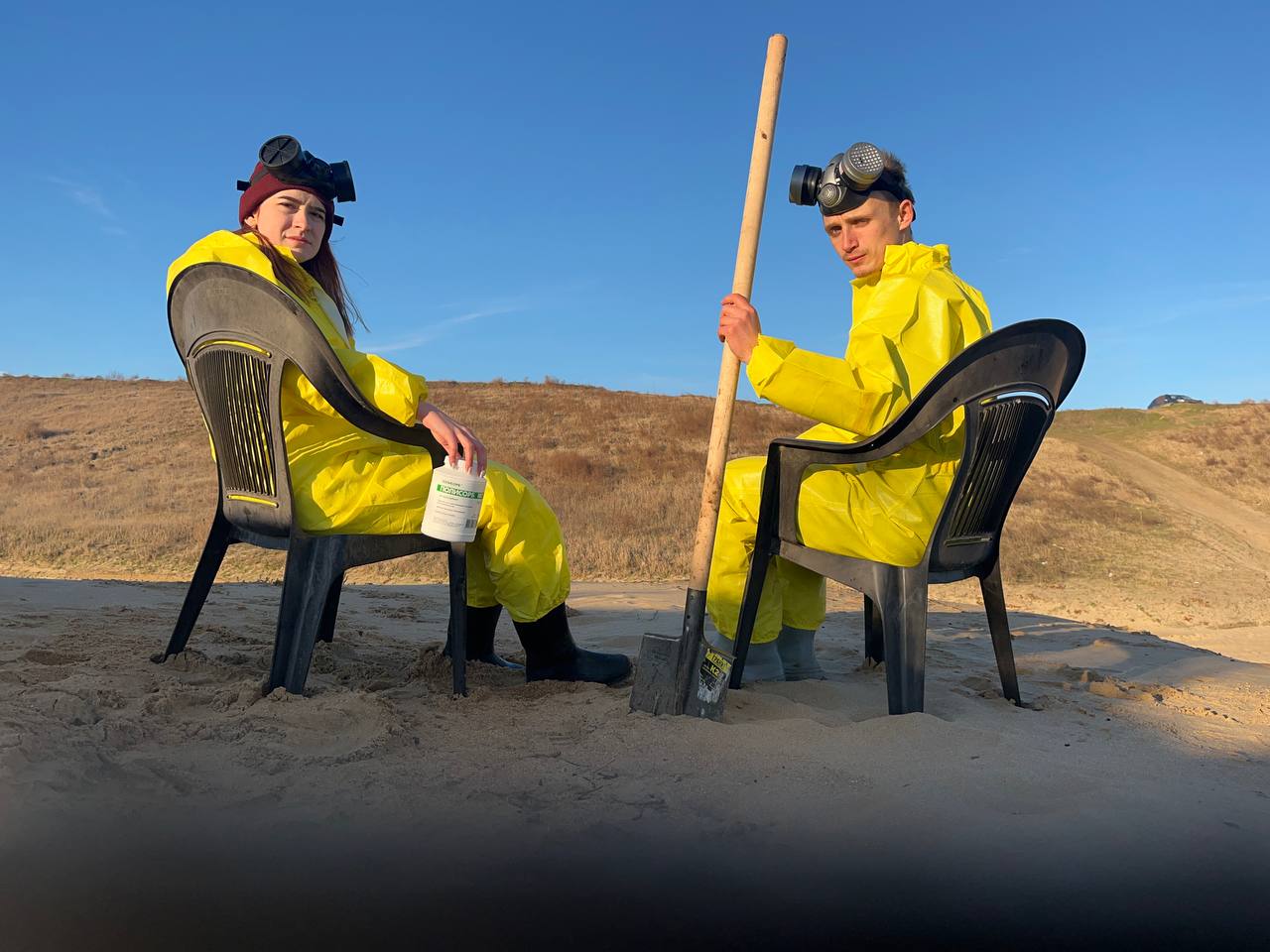In December 2024, alarming information spread across all news feeds: an environmental disaster occurred on the Anapa coast, because of the leak of fuel oil during its transportation. Black oil spills on the sea surface, suffering birds and animals, polluted beaches – all these shocked many people.
Irina Andreeva, a postgraduate student of Samara University’s Department of Ecology, Botany and Nature Conservation, happened among those who could not remain indifferent. She studies at the postgraduate school, researching the biochemical composition of fruit and berry crops, and is engaged in science “at the border of biology and ecology”. The decision to go to Anapa was not related to her research. Her motivation was completely different, which she describes as “a rush of the soul”.
The idea to go to the site of the eco-disaster arose unexpectedly. According to Irina, she didn’t follow the news and accidentally heard about it in her family conversation. At that time, there were not enough people to eliminate consequences of the environmental disaster. “Mom first offered to send the money. Indeed, this would also be an important help. But, having read more on the Internet about the scale of the disaster, I realized that it was hands, not money to be needed. I could spend the whole January holidays with my family at the festive table, but understood that if I did nothing, rather than save birds, animals and clean up fuel oil, I would not forgive myself”, recalls the postgraduate student.
The environmental field for study was also chosen not accidentally. The girl grew up in the countryside, surrounded by nature, and has loved animals and plants since her childhood. She enrolled in the Faculty of Biology and chose ecology as her specialty. “If I’m going to get an academic degree as an ecologist and dedicate my life to nature protection, then what’s the point of my achievements if I never do something important in my life with my hands, neither for scoring points nor for a career, but just for the sake of making the world better”, says the postgraduate student.
Against the background of this conviction, the desire to act arose. Irina quickly found the information on the state of the coast in the volunteers’ chat rooms. It was these chats where the volunteers joined in small groups for organizing transportation to the Black Sea coast. “Someone was looking for cars, drivers, someone offered to chip in for gasoline – continuous self-organization of caring people. For example, those who could not go personally transferred funds for gasoline for those who went to help. We joined together in a separate Samara volunteer chat room. Initially, there were about 200 people in it, but in a few days the number of its participants grew to 600. The unindifference was amazing: even if persons did not have the opportunity to go, they were looking for way of helping somehow”, recalls Irina. Getting to Anapa was no less a challenge. The volunteers traveled by cars in a tight group, with minimal time to rest. The overnight stay was also arranged in advance, the volunteers checked into the hotel on the Bugazskaya Spit, which became the base for the forthcoming work.
Once there, the girl saw the scale of the disaster. “On the first day, I was shocked. Everything looks different in the photo. In fact, the fuel oil eats into the sand and grass, and it is difficult to clean it. Birds are another story altogether. They suffer the most”, says the postgraduate student. The volunteers started working immediately after their registration on the portal “Dobro.ru” and obtaining protective equipment: respirators, gloves, boots and protective suits. But even here, unexpected difficulties have emerged. “The boots didn’t fit. With their standard size 37–39 shoes, girls were extremely uncomfortable to run in huge size 45 boots”, dwells Irina. To cope with this, Irina ordered boots and gloves on the marketplace, with delivery directly to the headquarters located in Vityazevo.
The volunteers were engaged in cleaning the coast, rescuing animals, cleaning up pollution in several areas, distributing protective equipment and medicines. The oil product was densely deposited in layers, which made it necessary to manually sift the sand through a sieve. The collected fuel oil was put in bags, but it was not always possible to “seal” it, which is why the substance sometimes leaked out. “One of the volunteers came up with the idea to put the fuel oil in double bags, for preventing its leakage, and this system gradually became the norm. It was hard, but important work. Despite the difficulties, you understand that every centimeter of the coast cleared is your contribution to the future”, notes Irina.
Another challenge was rescuing animals affected by fuel oil. Birds, marine life, dogs – many of them just had no chance to survive without human help. Volunteers caught birds mutilated by the oil film and brought them to the centre, where specialists were engaged in recuperating their strength. “Looking at a living organism to be literally drowning in fuel oil, at first you don’t comprehend the full scale. Forget the word “smeared”. This black substance covers them so much, that they often can’t even move. They find themselves completely constrained, exhausted. Dogs that do not understand that it is toxic try to lick the fuel oil off themselves, getting serious poisoning. I’ve seen dolphins too: it’s another pain”, shared Irina.
Too early attempts to release birds back into the wild turned out one of painful mistakes: the birds drowned because the water-repellent layer on their plumage hadn’t restored yet. Working on the beach has created many pitfalls and problems. For example, protective equipment that was so necessary for safety simultaneously became a new environmental problem. “Protective suits, gloves, rubber boots are made of plastic, which then decomposes for hundreds of years. Some of my colleagues threw away their suits after a few hours, even though they could have worked in them longer. This pollutes nature even more”, notes the postgraduate student. Irina also advocated the reuse of the protective equipment, for at least slightly reducing the burden on the environment.
Until January 10, Irina worked with four fellow travelers from Samara, eliminating consequences of the disaster. Her group shared its fighting spirit with other volunteers. “Despite all my fears, I’m still glad that I went there”, says Irina. “This trip filled me with inner inspiration. By helping others, you help yourself: even a small thing can make a big difference. It’s energizing. If at least one of our people helped save a bird, remove fuel oil or clean the coast, this is already a great contribution”.
During her work on-site, she managed not only to help nature, but also to meet the same caring people. “The volunteers came from different parts of the country: Rostov-on-Don, Veliky Novgorod, Perm, Izhevsk, St. Petersburg, Moscow, Stavropol, Kazan. Someone arranged the volunteers’ everyday life, someone was engaged in coordination, someone just did everything as much as could. Amazing people. We often faced difficulties, but it was easier to overcome them together”, shares Irina Andreeva.
Environmental disasters are not only a topic for discussion, but also a real reason for thinking about our interaction with nature. Irina Andreeva’s story is an example of how knowledge, skills, and inner willingness to act can combine for overcoming difficulties: “As an ecologist, I understand that the most important thing is not to remain silent and not to stand aside. If everyone of us treats nature more responsibly, there will be fewer such disasters. And still, disasters happen, it’s important to help each other, the animals, and the world around us”.
The girl is sure that this trip has changed her. “Yes, I’m writing my dissertation on biochemical composition of fruit and berry crops, and it’s interesting! I love science. But for me, being an ecologist is more than just a job. This is a principled position. It’s about not passing by when nature needs help”.




